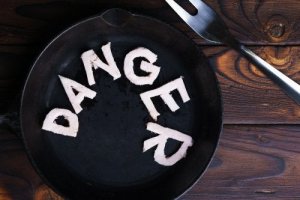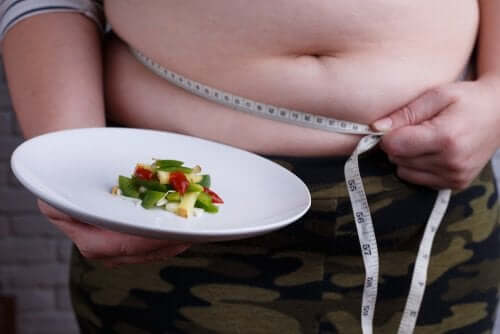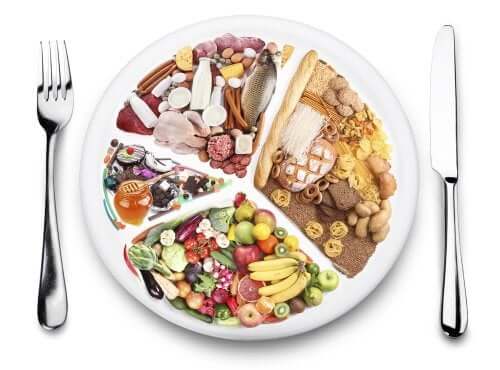Dangerous Diets and Their Warning Signs


Written and verified by the nutritionist Eliana Delgado Villanueva
Dangerous diets to lose weight fast with no scientific basis whatsoever are everywhere these days. However, instead of helping you, these one-magic-ingredient diets could lead to serious health problems.
We’d like to tell you about them today.
What Makes Fad Diets Dangerous

When we talk about dangerous diets, we refer to diets that aren’t balanced and therefore don’t provide all of the nutrients your body needs. On the contrary, they may also overload you with too much of a good thing. Keep in mind that it isn’t the ingredients that are bad, but your excessive consumption of them. (Remember, even water can be lethal if you drink too much of it.)
There are many scammers and irresponsible people out there and, unfortunately, the internet is plagued with all sorts of claims. Remember, when something sounds too good to be true, it usually is. The faster you lose weight, the sooner you’ll gain it back. This called “yo-yo dieting.”
In the long term, people who follow this pattern can end up with Dyslipidemia. This is a condition in which their blood lipid levels will be either too high or too low.
Miracle diets often lack scientific proof. Instead, they’re merely about opinions and claims, many of which are not only dangerous, but also absurd.
Read also: Iron Deficiency Anemia, Dietary Guidelines
The Warning Signs of Dangerous Diets
You’ll know almost immediately that you’re following a dangerous diet because you’ll notice the warning signs your whole body is sending you:
- Extreme hunger: These diets are often restrictive and you won’t ever feel full.
- Hair loss: If you experience this, then it means you lack vitamin B8 (Biotin). In addition, the appearance of gray hair, reddened and flaky skin and brittle nails are also a sign, as well as muscular pain.
- Lack of energy: When you lack vitamin C and B, your metabolism works harder, and this extra effort leads to fatigue, accompanied by a certain apathy and drowsiness.
- Scaly scalp: This could indicate a possible lack of essential fatty acids such as omega 3, as they act as lubricants throughout your body.
- Mouth sores and wounds: The recurring presence of mouth sores and wounds can alert you that you’re deficient in vitamin B12. If this is the case, make sure to eat poultry, red meat, and eggs.
- Tingling or numbness in hands and feet: This indicates a lack of vitamins of group B such as folate (B9). In addition, B6 and B12 are related to problems in the peripheral nerves, which can cause anxiety, depression and hormonal imbalances.
The Consequences of Dangerous Diets
As you can see, highly restrictive low-calorie diets, reduce a lot more than weight in the short term.
Moreover, they’re an unacceptable risk to your health because:
- They aggravate your risk of metabolic syndrome.
- These diets lead to malnourishment and deficits in both vitamins and minerals.
- This then can trigger eating disorders such as anorexia and bulimia which bring with them even worse consequences to you than the excess weight you had.
- They produce negative psychological effects and promote yo-yo dieting.
You might like: Five Dietary Foods that Make You Gain Weight
A Healthy Diet

Every diet should meet a few characteristics in order to be effective and not pose a risk to your health:
- First, you must seek gradual and moderate weight loss according to your body type, age, and gender. To do so without nutritional deficits, you should consume at least 13 calories per pound of body weight.
- A balanced supply of nutrients is very important to lose weight in a healthy way so that you obtain nutrients that come from every food group.
- You’ll need a minimum of 40-50% of daily carbohydrates for the proper functioning of your nervous system (brain, nerves), heart and blood cells (red blood cells, white blood cells, and platelets).
- Also, try to obtain about 20 to 30% of your daily calories from protein from meat, fish, eggs, cured cheese, yogurt, and nuts.
- Finally, the remaining percentage of your daily meals should include a form of animal or vegetable fat. Fat isn’t the enemy here; it’s the quality of fat that is. Therefore, stay away from hydrogenated oils (margarine, Crisco, and any other trans fat).
Conclusion
The process of losing weight should take time and happen progressively to be successful. Doing so too quickly is bad for your health.
Yes, you can have your cake and eat it, too…as long as you make it with the right ingredients!
Keep in mind you must make all sorts of small changes to your lifestyle as well. It’s the little change in habits that will stay with you forever. Then, you won’t just lose the pounds you wish to lose, you’ll also feel great and keep them off.
All cited sources were thoroughly reviewed by our team to ensure their quality, reliability, currency, and validity. The bibliography of this article was considered reliable and of academic or scientific accuracy.
- Carr AC, Maggini S. Vitamin C and Immune Function. Nutrients. 2017 Nov 3;9(11):1211
- Langan RC, Goodbred AJ. Vitamin B12 Deficiency: Recognition and Management. Am Fam Physician. 2017 Sep 15;96(6):384-389.
- Baladia E., Manera M., Basulto J., Las dietas hipocalóricas se asocian a una ingesta baja de algunas vitaminas: una revisión. Actividad Dietética, 2008.
This text is provided for informational purposes only and does not replace consultation with a professional. If in doubt, consult your specialist.








